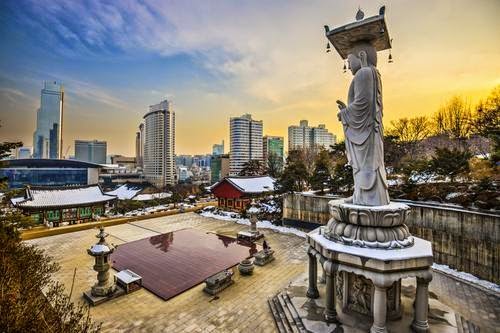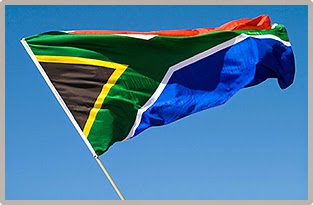UK immigration and UK Visa policy changes
UK Immigration Minister Damian Green spoke recently at the Royal Commonwealth Society in London about immigration. The Immigration Minister said that the Government wishes to "maximise" the benefits of immigration. The contents of the immigration minister's speech had already been widely reported in the news ahead of the actual speech.

How to Enter prenup in Philippines?
Prenuptials are not the norm in the Philippines, but only for those few who are aware they can have such a side contract. Prenups seem to fly in the face of the family code that says" Marriage is for life," and in a country where there is no divorce.
All About K1 Fiance Visa
A K1 visa or commonly known as US Fiance Visa is a dual intent visa issued to the fiance of a United States citizen to enter the United States. A K1 visa requires a foreigner to marry his or her US citizen petitioner within 90 days of entry, or leave the U.S. Once the couple marries, the foreign citizen can adjust status to become a lawful permanent resident of the United States.

Beware of Bogus UK Visa and Job Offers
A number of incidents have been reported which involve bogus job offers being made to foreign nationals who want to work in the UK. The scam, which appears to be email based, frequently cites the names and titles of real UK Border Agency officials, presumably to add authenticity to the offers of “work”.

Ten Interesting Tips To Help You Understand Your Immigration Case
I have discussed before some tips for a successful US Immigration and Successful UK Immigration. I also share to you the Ten Commandments of Succesful Immigration. Now let me share to you some tips on how you can understand your Immigration case.

Thursday, July 31, 2014
New Australian Visa Program to Lure Wealthy Chinese
Sunday, July 27, 2014
Very Bad Week: Airline Disasters Come In A Cluster
Saturday, July 26, 2014
How To Be a Better Traveler
- Contribute: Contributing to the local economy is one of the best things you can do when travelling. By buying locally made products or staying in homegrown hotels (not big international chains), your tourist dollars go direct to the people who need them. If you’re visiting an orphanage or school in a developing country, find out beforehand whether it’s worth bringing items such as pencils or schoolbooks for the local children.
- Research: Heading somewhere new? Then do some research on the local customs and traditions, even if it’s just for five minutes on the plane. You may find out what not to wear, whether some gestures could be misinterpreted as rude, or even pick up useful some local words. Are public displays of affection frowned upon? You’d thank yourself for finding out before anything happened.
- Show respect: Treat others the way you’d like to be treated. You should remain respectful to everyone you meet, whether that’s the women at the convenience store, the hawker interrupting your beach session, or someone working behind the airport check-in counter. If you treat others with respect, then they’re more likely to offer helpful advice if things go wrong.
- Live in the moment: Are you guilty of dining in McDonald’s everywhere you go? Trust us, it tastes the same. Travelling should be able trying new things, even if that’s a local delicacy you can’t pronounce. Be adventurous, and you’ll get a whole lot more out of your experience.
- Don’t blow your lid: Schedules inevitably change when travelling. Although this can be extremely frustrating, blowing your top about it isn't going to help anyone - least of all you. Being patient and accepting of the situation, knowing that it will eventually get resolved, will get you a lot further as people are more likely to help a calm person than an irate one.
- Be patient: Patience is a virtue. When you accept that most things are going to be done differently from what you’re used to, you’ll have a more relaxing trip. Some countries are much more laid back than others and may take longer to respond to requests. Just be patient.
- Go local: You never know if or when you will get to experience the country you are travelling in again, so try to get the most out of it. Hang with the locals, learn about places to explore which aren’t mentioned in your guidebook, and just soak up the authentic local culture.
- Be a good passenger: Long plane and bus journeys are usually pretty uncomfortable, so stay mindful of your fellow passengers. Avoid invading their personal space by spilling into their seat, and if you have a weak bladder maybe request the aisle seat. Everyone is pretty crammed together so it’s also a good idea to freshen up before you embark on the long journey.
- Barter with respect: When visiting developing countries, most market vendors are usually open to a bit of bargaining and quite enjoy the banter that goes along with it. Just keep in mind that the $1 or so you’re bargaining over may feed this salespersons family for days, so stay fair and real. Don’t treat the person poorly just because you’re trying to secure a better deal.
- Be organised: Ensure you are totally organised before you set off on your travels. Have your map and guide book close and exchange some money before you leave. Allow yourself plenty of time to get to the airport to avoid unexpected delays.
Friday, July 25, 2014
After 17 Years, Naia-3 To Be Fully Operational
Thursday, July 24, 2014
Few Biting So Far on Japan Special Visa for Workers
Wednesday, July 23, 2014
Top 10 Airlines around the Globe for Flying Economy
9. Oman Air Reviews say the seats on this small airline are super-comfortable bringing it into number nine on this list. In-flight experience: 82 On-time performance: 76
8. Lufthansa Professional and friendly crew, along with tasty food are what bring Europe’s largest airline to number eight. In-flight experience: 80 On-time performance: 80
7. Korean Air Leg room is what passengers want and it is what Korean Air delivers along with very clean planes making this Seoul-based carrier popular. In-flight experience: 78 On-time performance: 84
6. Emirates This popular airline out of Dubai is host to one of the best in-flight entertainment systems that is praised by passengers travelling on its many long-haul routes. In-flight experience: 82 On-time performance: 79
5. Malaysia Airlines Consistent great service on board Malaysia Airlines flights are what we see from reviews. The 5-star airline also offers great value for money. In-flight experience: 83 On-time performance: 77
4. Asiana Airlines Receiving top marks for efficiency of service and comfort, passengers love this 5-star airline. In-flight experience: 85 On-time performance: 78
3. Qatar Airways This impressive airline doesn’t make the top spot due to poor on-time performance but the great in-flight entertainment and the fact that economy passengers get to enjoy features like smartphone and tablet connectivity to their personal screens is a plus. In-flight experience: 90 On-time performance: 71
2. All Nippon Airways (ANA) Cleanliness and safety are what make this Japanese airline stand out from the crowd. The fact that many of the planes feature a slide-forward, side-reclining seat that increases overall privacy doesn’t hurt either. In-flight experience: 85 On-time performance: 83
1. Singapore Airlines Topping this list for the second year running, Singapore Airlines ticks all the boxes for service, in-flight entertainment and cabin cleanliness. In-flight experience: 90 On-time performance: 83
Tuesday, July 22, 2014
Know The Most Visited Cities in the World
Monday, July 21, 2014
Immigration Bureau Uses High-tech Visas to Track Tourists
Sunday, July 20, 2014
Thousands of jobs at risk after Senate disallows visa changes for foreign offshore rig workers
Saturday, July 19, 2014
Immigration Hunts Fake-Passport Holders
Friday, July 18, 2014
Thailand Immigration Gets Tough
Sunday, July 13, 2014
35 Genius Travel Tips that Can Make your Vacation Easy
35 Genius Travel Tips That Will Change Your Life Forever
 Posted in:
Travel Tips
Posted in:
Travel Tips
Saturday, July 12, 2014
South Africa's New Visa Rules Spark Outcry
Friday, July 11, 2014
New Technology Helping to Fight Immigration and Visa Fraud in Australia
Thursday, July 10, 2014
US-Bound Airlines to Screen Smartphones, Laptops Because of New Al-Qaeda Terror Threat
Wednesday, July 9, 2014
TigerAir Philippines Advisory on Flight Cancellation
Friday, July 4, 2014
US Immigration Latest Green Card Priority Dates
| Visa Category | General | Mainland China | India | Mexico | Philippines |
| EB-1 | None | None | None | None | None |
| EB-2 | None | 1 Jul 09 | 1 Sept 08 | None | None |
| EB-3 | 1 Apr 11 | 1 Oct 06 | 1 Nov 03 | 1 Apr 11 | 1 Jan 09 |
| EB-3 (others) | 1 Apr 11 | 1 Jan 03 | 1 Nov 03 | 1 Apr 11 | 1 Jan 09 |
| EB-4 | None | None | None | None | None |
| EB-5 | None | None | None | None | None |
| Visa Category | Visas available |
| EB-1 - Priority workers of extraordinary ability | 28% - 40,000 |
| EB-2 Members of 'the professions' with advanced degrees, 'exceptional ability' or 'national interest' | 28% - 40,000 |
| EB-3 Skilled workers and professionals | 28% - 40,000 |
| EB-3 Other workers | Maximum of 10,000 of the EB-3 quota |
| EB-4 'Special immigrants' including religious workers | 7.1% - 9,940 |
| EB-5 Investors | 7.1% - 9,940 |
Wednesday, July 2, 2014
South Africa preparing ‘critical skills’ list for work visas under new immigration rules
Quota work permit and exceptional skills work permits have been repealed under amendments to regulations. Those issued with business visas must now employ or prove that at least 60% of their total staff are South African citizens or permanent residents. Gigaba said the number required before the changes was just five employees.



 2:21 PM
2:21 PM
 Sef Gutierrez
Sef Gutierrez












































